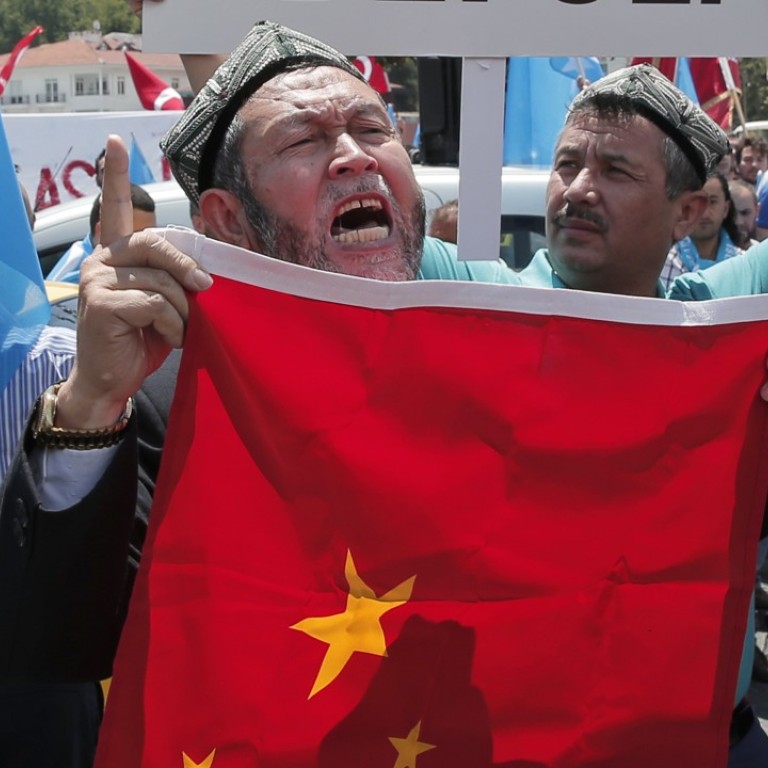
Uygur discontent must be addressed in times of terror
With the return of Middle East fighters, greater efforts must be made towards achieving economic equality and ensuring cultural and religious expression
The length and remoteness of China’s northwestern border make it difficult to determine how many battle-hardened ethnic Uygur fighters have returned to Xinjiang from Syria and Iraq. Nor have authorities revealed whether there has been a marked upsurge in terror attacks in the autonomous region since the retreat of extremist Muslim groups such as Islamic State (IS) and al-Qaeda in the Middle East.
Officials have spoken of a tenfold rise last year over 2016 in the number of jihadists intercepted while trying to cross the border. But the threat is not confined to the nation, as attacks on Chinese citizens and interests overseas prove, making a complex strategy necessary to tackle the scourge.
Syrian officials claim 5,000 Uygurs were among the tens of thousands of foreigners to have joined extremist and rebel groups involved in the country’s civil war and the attempt by IS to create a caliphate. With the conflict nearing resolution and IS all but defeated, it is inevitable that some would want to return home, perhaps to use their combat and weapons skills to avenge perceived injustice or in the name of separatism.
Some Uygurs have said they left Xinjiang for the far-off battlegrounds with the aim of gaining experience with weapons and strategy to carry out attacks against Beijing for perceived injustices. Uygur exiles and Western human rights groups contend a tough security crackdown in Xinjiang has fuelled resentment and intensified a push for an independent homeland.
Hundreds, perhaps even thousands, have been killed in extremist attacks since 2009 and the militant East Turkestan Islamic Movement is said to be behind a number. Beijing contends the group was involved in a suicide bombing of the Chinese embassy in the Kyrgyzstan capital in 2016, and Uygurs were blamed for the bombing of a shrine in Bangkok in 2015 that killed 21 tourists, among them six Chinese, two from Hong Kong.
China has been on higher alert for terrorism since 2015, when IS began expanding into Central and Southeast Asia; the group claimed to have kidnapped and killed two Chinese in the Pakistani city of Quetta in May. The country is an integral part of the “Belt and Road Initiative”, China’s trade strategy, and last month Beijing’s embassy in Islamabad warned nationals of heightened risks.
China is just one of dozens of nations grappling with the threat of terrorism as a result of radicalised citizens returning from the Middle East. Stepped-up border surveillance, improved anti-terrorism collaboration and cooperation with other countries are already priorities for Beijing. But greater efforts to get to the roots of Uygur discontent also have to be made through improvements aimed at economic equality and ensuring cultural and religious expression.

